Table of Contents
Quartz countertops have been steadily gaining popularity over the years, and this material trend is nowhere near over. Quartz has made its way into kitchens and bathrooms because it is one of the most resilient and forgiving countertop choices and the endless colors and patterns available. It also does not require any annual maintenance like granite or marble require sealing, making it a convenient choice for homeowners. But in order to keep quartz in its pristine condition for years to come, proper cleaning techniques should be established. Need help on where to begin? We have composed a guide on how to clean quartz countertops, to help maintain the stone’s surface.
[get_quote]
Benefits of Quartz Countertops
Quartz is a tough countertop choice because of its composition. It is created by combining natural ground quartz with small amounts of resin and adding in color pigments. The mixture is then transferred into a mold, which forms a slab. Most quartz manufacturers cure the slabs to strengthen them. Finally, they are polished and sold. This extensive process makes quartz extremely durable: it is scratch-, stain- and crack-resistant because of its high-density, nonporous, easy to maintain surface.
How to Clean Quartz Countertops
It is recommended that you clean quartz countertops on a daily basis if the countertop was in use. Taking this simple precaution will help eliminate stuck-on foods, and spills will not have a chance to dry and stain.
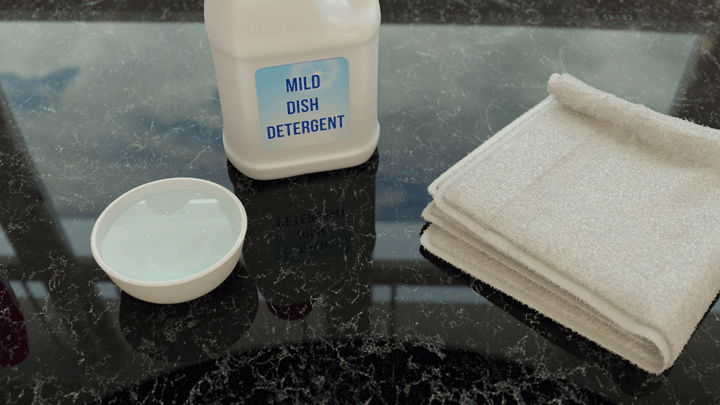
Warm water and a mild dish detergent solution is the simplest and most convenient way to clean quartz. To begin, pour warm water into a medium size bowl, and add in a generous amount of liquid mild dish detergent. Then, stir the content until the detergent has fully dissolved in the water. Using a soft towel, clean the countertop surface using a circular motion. Once the surface is clean, use a clean towel and fresh water to wipe the counter, and fully dry the countertop with paper towel or a soft dry towel.
Vinegar and water mixture is an alternative every day cleaning solution. In a medium size bowl, combine water and vinegar in equal parts, and mix well. Clean the entire surface using circular motion with a soft towel. Wipe down the countertop with a clean towel and fresh water, and dry the entire surface using paper towel or a dry towel.
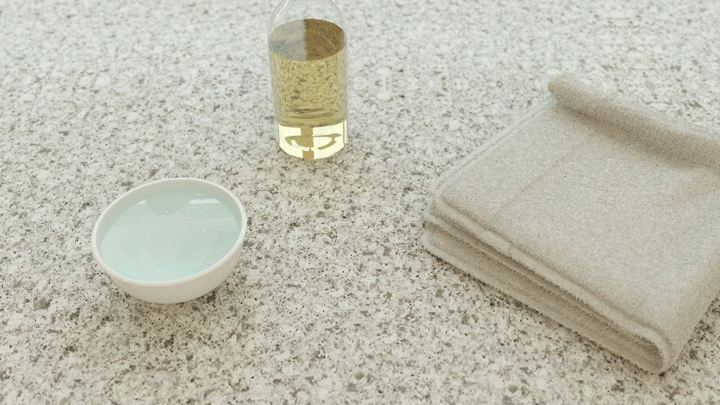
Specialized quartz cleaners can also be used to wipe up everyday messes. They are formulated specifically for quartz, and are available for purchase in home improvement stores and online. Alternatively, glass cleaner can sometimes be used, however not all manufacturers recommend it. Make sure to refer to the specific quartz manufacturer to confirm glass cleaner is a safe cleaning method. Most manufacturers will advise to avoid using ammonia-based glass cleaners, as they may dull the stone’s surface over time.
[get_quote]
Dried-on residue such as food or glue should be removed before using a cleaning solution. Using a plastic putty knife, scape away from the body to remove dried-on gunk. Never use metal utensils to pry away dried-on objects, as it may lead to surface scratches.
The cleaning solutions listed above are great for quick every day cleanups. They are effective against coffee and tea spills, red and white wine, ketchup and mustard, food coloring, herbs and spices, and oils such as olive and canola oil.
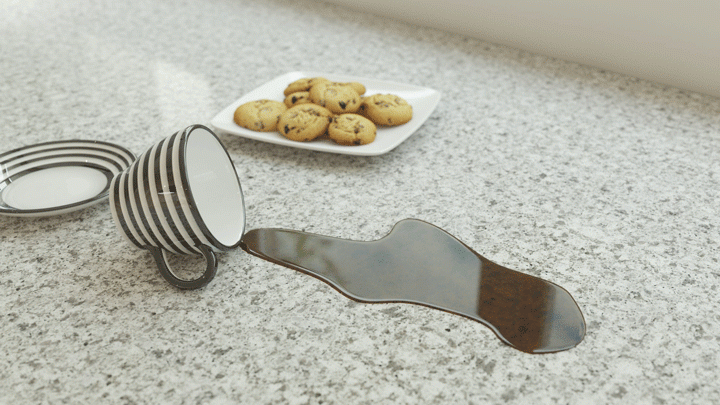
Keep in mind that concrete and honed surfaces are more exposed to spills and should be cleaned more frequently using these common techniques.
Tough Stains
If a spill or a stain is not budging after using mild cleaning solutions, there are other cleaning techniques that can be used. Although they are generally safe to use on quartz countertops, always refer to the owner’s manual to avoid permanent damages when seeing how to clean quartz countertops.
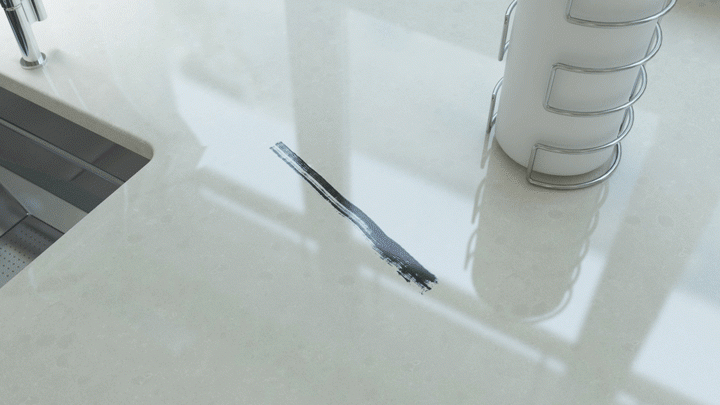
For glue, ink, permanent market, and blood stains, try using isopropyl rubbing alcohol. As a solvent, rubbing alcohol can help remove these stains. Gently pour a small amount of rubbing alcohol onto a clean rag, and apply directly to the stain using a circular motion. Using a clean towel, wipe down the area with warm water, and dry the counter completely using paper towel or a clean towel.
Hard water deposits and soap stains can be treated with water and vinegar solution. A 1:1 water and vinegar solution is great for fighting these stains, whether in the kitchen or bathroom. Use the instructions above for the detailed vinegar and water cleaning solution.
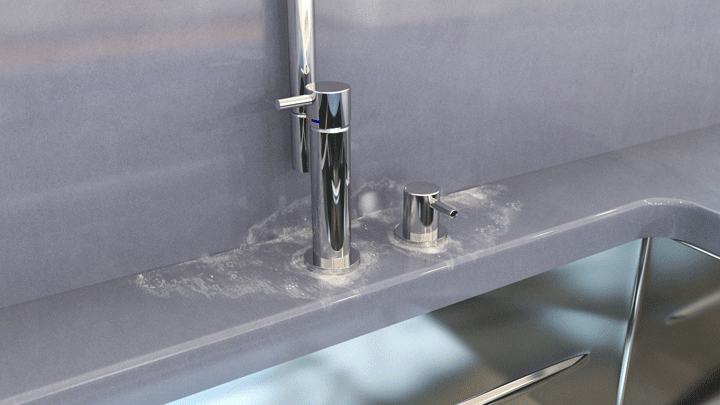
Magic eraser may also be used to fight tough quartz stains, simply wet the magic eraser and apply in gentle, circular motion. Clean the area thoroughly with water and dry with a clean towel after.
For tough to fight grease residue, you may use degreasing cleaners. Use only degreasing cleaners, designated for quartz use! Follow the instructions on the bottle, as they will vary. Rinse surfaces thoroughly immediately after using degreaser.
While using any of the methods listed above, exercise care. Do not leave any of the solutions on the quartz surface unattended, and always rinse the countertop surface after use. Always refer to your manufacturer’s guidelines for the use of any particular cleaning solutions.
Cleaning Agents to Avoid
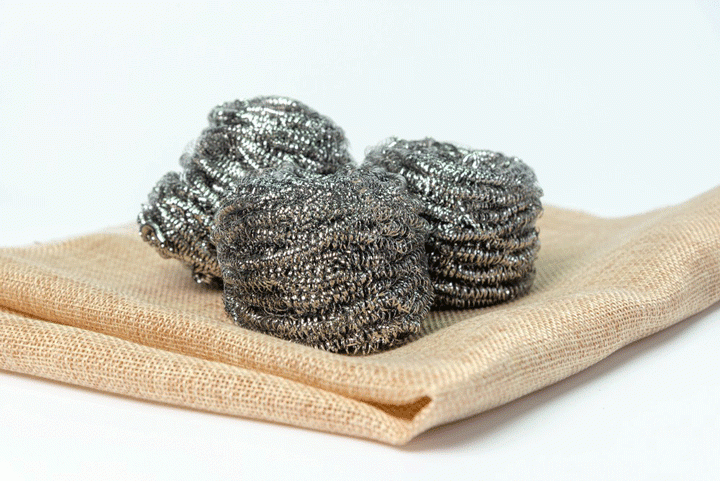
Most quartz manufacturers will provide a list of cleaning supplies and methods to avoid using on their specific products. However, most agree on avoiding abrasive cleaners. Harsh, abrasive cleaners, pads, and sponges are to be avoided, as they can cause permanent, irreversible countertop damage. Aggressive scrubbing can lead to dull surface or superficial scratches on its surface. High pH cleaners, such as oven cleaners, grill cleaners, paint removers, and dishwasher detergent and others should not be used on quartz countertops. Concentrated bleach can leave stains, and any diluted bleach use should only be used as directed by the manufacturer. Using waxes, sealants or polishes on the countertops is also not recommended, as they will often void the warranty on the slab.
[get_quote]
Preventative Measures
Quartz is tough, but it’s not indestructible. Using simple preventative measures can help preserve the countertop and help prolong the life of quartz.
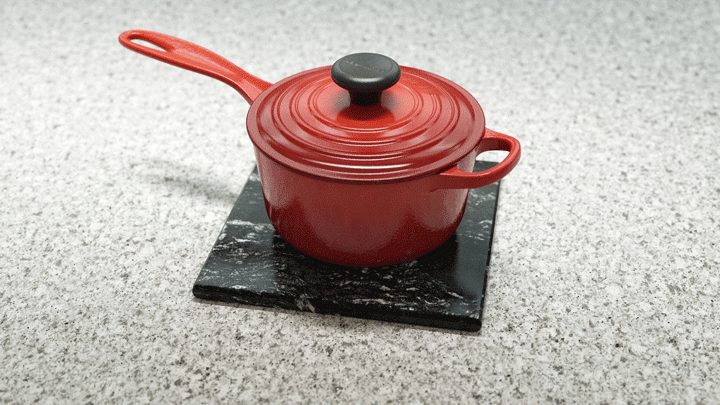
Trivets should be used to keep hot cookware off of the countertops. Quartz can not withstand the same heat as natural stone countertops and leaving hot pots and pans directly on its surface can cause discoloration, due to the small amounts of resin that is used in the manufacturing process. Further drastic change in temperatures can cause the countertop to develop cracks. Although this is unlikely to happen with every day use, it’s always best to take precautionary steps.
Get in the habit of cleaning up any spills right when they happen. If any kitchen accident occurs, it’s always better to take care of it right away – rather than dealing with a dried-up stain.
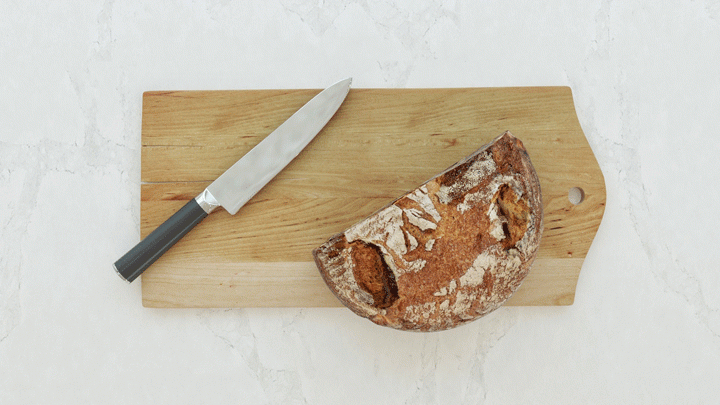
Always use a cutting board while cooking, Quartz is scratch resistant, but sharp objects may cause small scratches over time.
Quartz is also not recommended for any outdoor use; quartz manufacturers will void the warranty if the material is used for outdoor kitchens or BBQs.
As the technological advances are pushing quartz to become ever more resilient countertop material than ever, taking simple steps to protect your investment are recommended. This guide on how to clean quartz countertops along with the specific manufacturer’s tips is a great way to ensure the long life your countertop deserves.













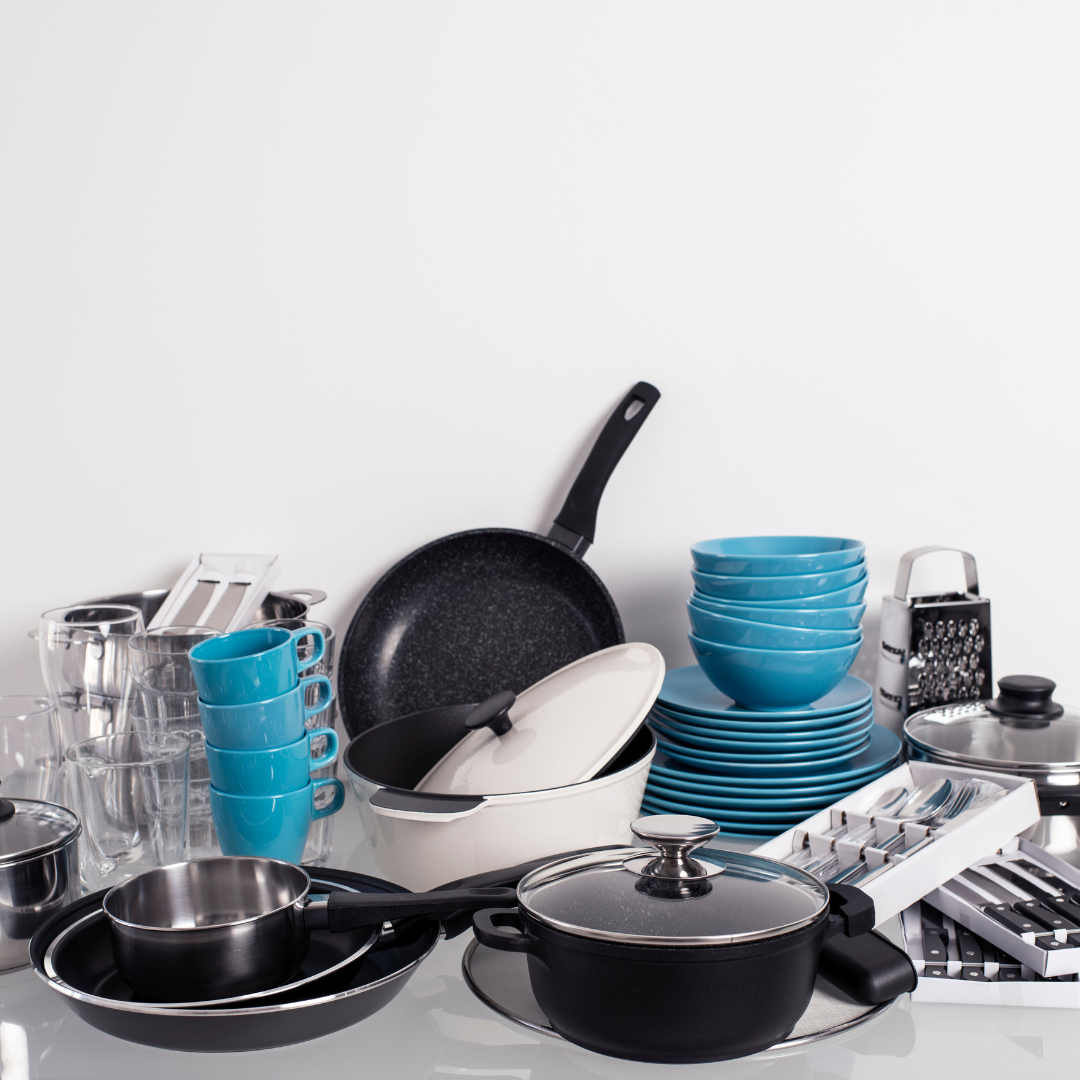
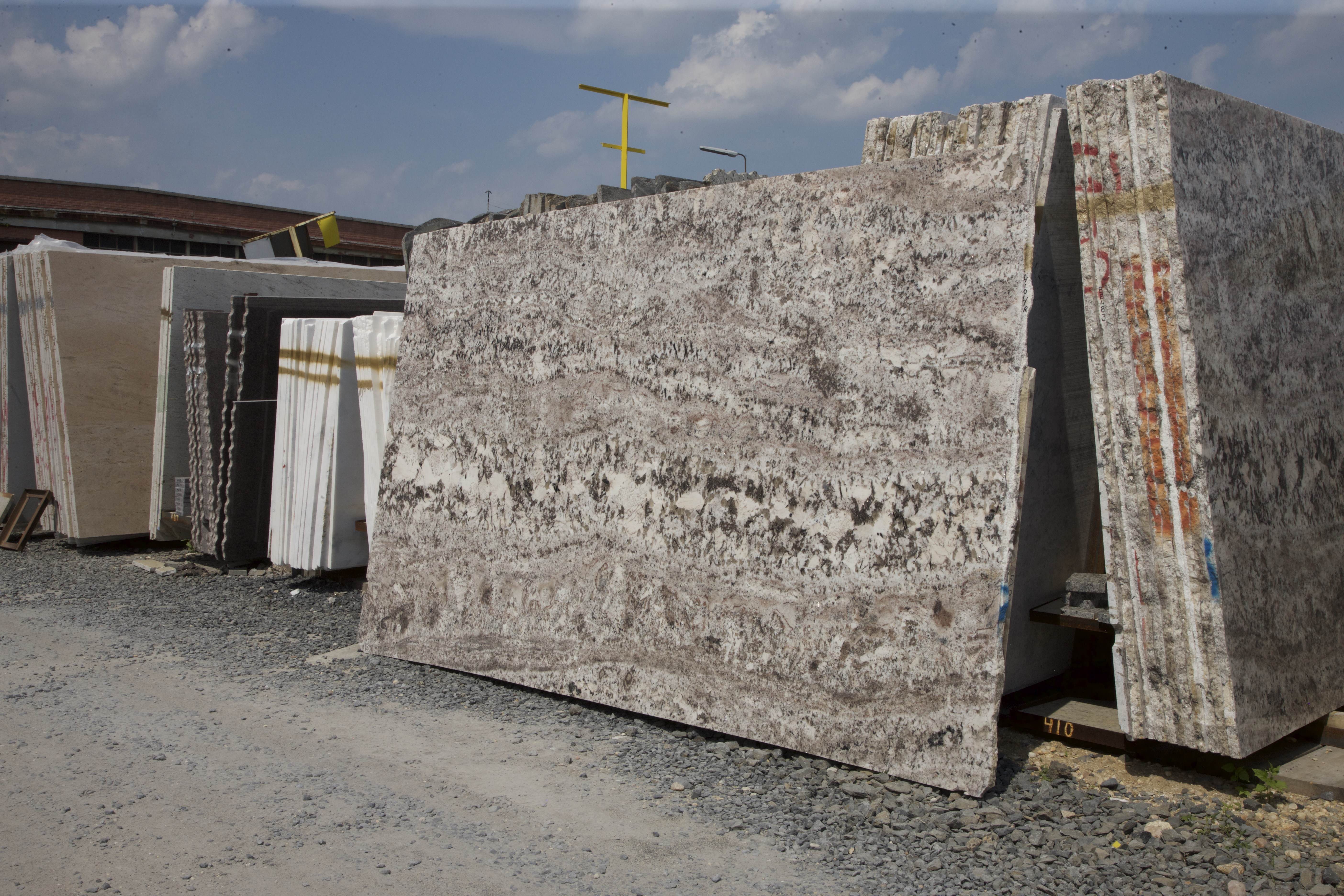

 The article helped me immensely
The article helped me immensely
 I’m now more informed on the subject
I’m now more informed on the subject
 I have questions about Marble.com
I have questions about Marble.com
 The article was not accurate at all
The article was not accurate at all
 There is a serious lack of information
There is a serious lack of information
 I have questions about Marble.com
I have questions about Marble.com